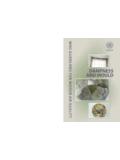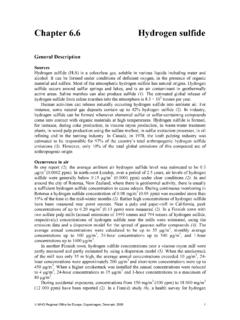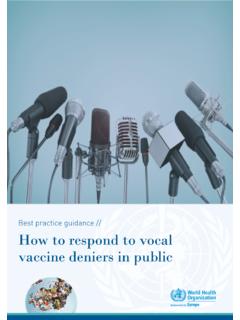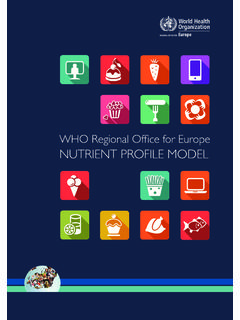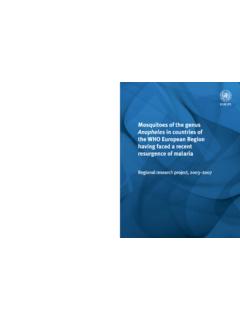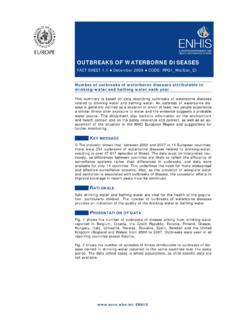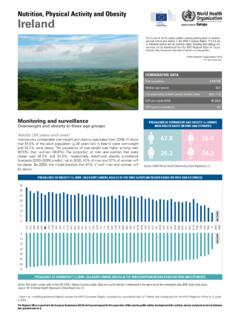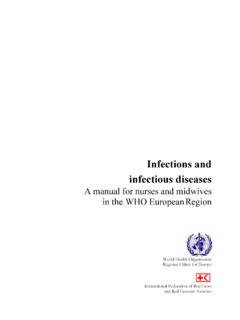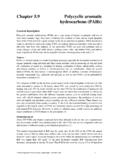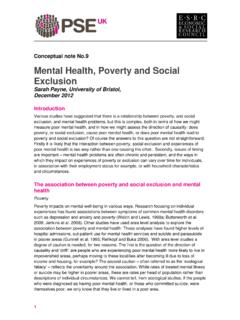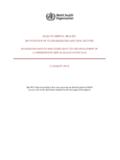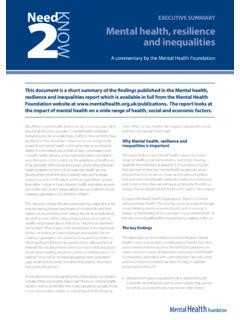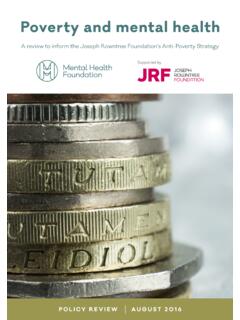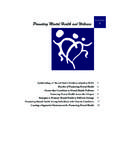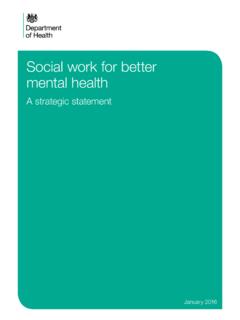Transcription of Mental health, resilience and inequalities
1 Mental health , resilience and inequalitiesDr Lynne FriedliKeywords: Mental HEALTHADAPTATION, PSYCHOLOGICALSOCIOECONOMIC FACTORSPOVERTYHEALTH STATUSA ddress requests about publications of the WHO Regional Office for Europe to:PublicationsWHO Regional Office for EuropeScherfigsvej 8DK-2100 Copenhagen , DenmarkAlternatively, complete an online request form for documentation, health information, or for permission to quote or translate, on the Regional Office web site ( ). World health Organization 2009 All rights reserved. The Regional Office for Europe of the World health Organization welcomes requests for permission to reproduce or translate its publications, in part or in full.
2 The designations employed and the presentation of the material in this publication do not imply the expression of any opinion whatsoever on the part of the World health Organization concerning the legal status of any country, territory, city or area or of its authorities, or concerning the delimitation of its frontiers or boundaries. Dotted lines on maps represent approximate border lines for which there may not yet be full mention of specific companies or of certain manufacturers products does not imply that they are endorsed or recommended by the World health Organization in preference to others of a similar nature that are not mentioned. Errors and omissions excepted, the names of proprietary products are distinguished by initial capital reasonable precautions have been taken by the World health Organization to verify the information contained in this publication.
3 However, the published material is being distributed without warranty of any kind, either express or implied. The responsibility for the interpretation and use of the material lies with the reader. In no event shall the World health Organization be liable for damages arising from its use. The views expressed by authors, editors, or expert groups do not necessarily represent the decisions or the stated policy of the World health health , resilience and inequalitiesContents Acknowledgements II Summary III1. Introduction 012. Aims 043. Policy context: Mental health and wellbeing 054. Social determinants and Mental health 085. Defining Mental health 106. Domains of influence: the benefits of positive Mental health 157.
4 resilience 228. Life course 329. Mental health and inequalities : pathways of influence 3510. Conclusions 3811. References 4212. Appendices 53 IMental health , resilience and inequalitiesIIAcknowledgementsThis report was written by Dr Lynne Friedli for the WHO Regional Office for Europe. The Office would like to thank members of the Reference Group for their invaluable comments and suggestions and colleagues who made time to attend a peer review seminar on this paper hosted by the Mental health Foundation. Thanks also to Dr Gyles Glover and to colleagues who attended seminars hosted by the Journal of Public Mental health in partnership with the Scottish Development Centre for Mental health , the Glasgow Centre for Population health and the Scottish Government.
5 These events contributed centrally to the ideas explored in this report. The Scottish Development Centre for Mental health also kindly provided an opportunity for discussion of emerging findings from the research at their 10th Anniversary Conference, held in Glasgow in October 2007. Final acknowledgement goes to the Mental health Foundation1, who funded the production of the report, and to Dr Andrew McCulloch for his ongoing support and commitment to public Mental health . Matt Muijen, Regional Adviser Noncommunicable Diseases and Environment, WHO Regional Office for Europe Supported by:NIMHEThe National Institute for Mental health in England (NIMHE) is the national delivery support agency for Mental health policy in England.
6 NIMHE supports the production and dissemination of this report as it presents a powerful and compelling case underlining the need to improve and expand policies and programmes at European, national and local levels that improve the Mental health and Mental wellbeing of our populations. Without this approach we will not achieve the benefits that good Mental health brings to our countries economic, social and cultural Poverty Action GroupChild Poverty Action Group (CPAG) is a leading charity campaigning for the abolition of child poverty in the UK and for a better deal for low-income families and children. CPAG supports this report because it demonstrates so clearly the damage that inequality does to Mental health .
7 This analysis highlights the social recession of families being left behind and the harm this causes and it clearly demonstrates that tackling child poverty and boosting fairness must be the watch word of societies which seek to promote good Mental of Public HealthThe Faculty of Public health is the standard setting body for specialists in public health in the UK. We support this report because we believe that it says all the right things about empowerment and the promotion of wellbeing. It usefully complements the recent report from the WHO Commission on Social Determinants of health and helps to fill many of the gaps between Mental health and inequalities , including the crucial links between negative health behaviours and poor physical health .
8 We very much welcome its emphasis on promoting wellbeing - the focus on developing resilient individuals, communities and environments being particularly timely during the current global economic health , resilience and inequalitiesSummary Although the risks and contradictions of life go on being as socially produced as ever, the duty and necessity of coping with them has been delegated to our individual selves. Zygmunt Bauman 2007a p. 14 This report explores the wealth of evidence that Mental health influences a very wide range of outcomes for individuals and communities. These include healthier lifestyles; better physical health ; improved recovery from illness; fewer limitations in daily living; higher educational attainment; greater productivity, employment and earnings; better relationships with adults and with children; more social cohesion and engagement and improved quality of life.
9 These outcomes are not just or necessarily a consequence of the absence of Mental illness, but are associated with the presence of positive Mental health , sometimes referred to as wellbeing . Improving Mental health is a worthwhile goal in itself: most people value a sense of emotional and social wellbeing; in addition, good Mental health has many other far reaching health is a fundamental element of the resilience , health assets, capabilities and positive adaptation that enable people both to cope with adversity and to reach their full potential and humanity. Mental health is also the key to understanding the impact of inequalities on health and other outcomes. It is abundantly clear that the chronic stress of struggling with material disadvantage is intensified to a very considerable degree by doing so in more unequal societies.
10 An extensive body of research confirms the relationship between inequality and poorer outcomes, a relationship which is evident at every position on the social hierarchy and is not confined to developed nations. The emotional and cognitive effects of high levels of social status differentiation are profound and far reaching: greater inequality heightens status competition and status insecurity across all income groups and among both adults and children. It is the distribution of economic and social resources that explains health and other outcomes in the vast majority of studies. The importance of the social and psychological dimensions of material deprivation is gaining greater recognition in the international literature on poverty and informs current efforts to develop indicators that capture the missing dimensions of poverty.
